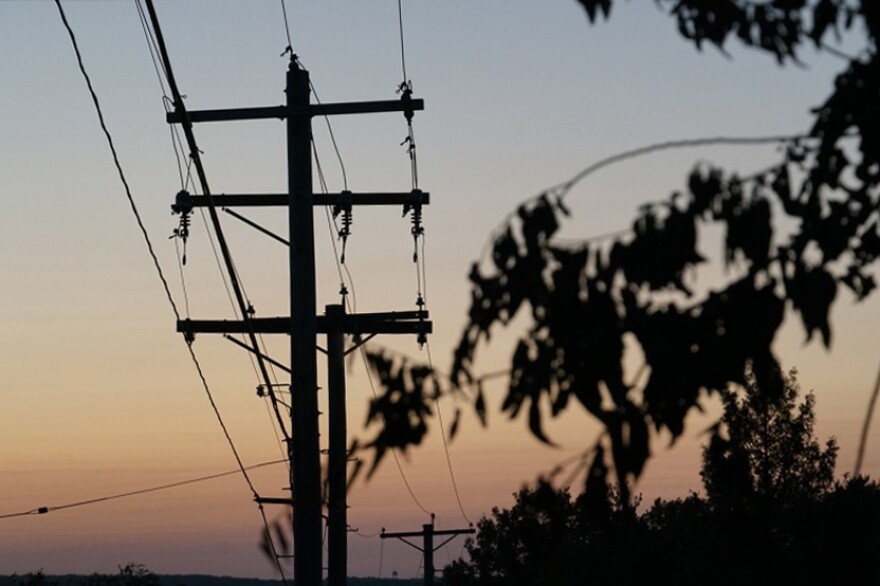Ameren’s proposal for new large data center rates could raise electric bills by an estimated $22 million per year, according to filings from Missouri’s utility regulator staff.
The huge demand for energy from these data centers will require expensive new power plants, and staff wrote that instead of protecting customers, Ameren’s proposal would raise rates while enriching Ameren’s shareholders.
“Captive ratepayers should not pay unreasonably for those upgrades nor should existing ratepayers be caught having to pay for any potential stranded or under-utilized resources built to serve anticipated large load customers,” wrote James A. Busch, director of the industry analysis division of the Missouri Public Service Commission.
The staff of the Missouri Public Service Commission said the commission should reject Ameren’s proposal in a rebuttal document filed on Sept. 5. Ameren’s plan will not protect customers’ rates “from reflecting unjust and unreasonable costs,” staff wrote.
The filings are part of a case before Missouri’s utility regulators, in which utilities are essentially writing the rules for how large data centers will buy their electricity when they move to their area. A new state law prompted Missouri’s largest utilities to do this, creating special rates and terms of service for customers that will use unprecedented amounts of energy.
Ameren has submitted its initial proposal and other participants in the case have now filed their rebuttals. Early next year, state regulators will finalize the new rates.
In the newly filed documents, regulatory staff stated that before a rate case could recognize a new data center customer, all of the expenses related to the customer would flow to existing customers, while all of the revenue from the data center would flow to shareholders.
Staff calculated that because of this, a new 100MW data center would raise the bills of existing Ameren customers by about $22 million every year until the data center’s new load was accounted for in a rate case. At the same time, Ameren would receive $33.5 million in new rate revenue from that customer.
Huge data centers would cause rates to increase because of their unprecedented energy demand, which will need to be met by buying more energy from the regional grid and building new, expensive power plants.
“A new [large load] customer is somewhat equivalent to the addition of a new medium-sized city, essentially overnight, located at a single transmission load node,” staff wrote in the rebuttal.
The infrastructure costs could exceed $1 billion for just one large load customer, according to Busch’s testimony. Without a new policy in place, those costs are typically spread among customers in their electricity rates.
“Utilities have an incentive to overstate the need to their system,” Busch wrote. “Electric utilities profit from putting steel in the ground.”
Staff also wrote that data center companies may not become Ameren customers unless the pricing and terms are better than what the customer could build or obtain on its own. At least one data center in Missouri, Mastercard’s O’Fallon center, has already announced it is building its own solar field to power its operation, separate from Ameren’s system.
Ameren laid out multiple provisions for large customers that its representatives say would protect customers, including minimum terms of service, collateral and a two-year termination notice.
But staff pushed back on even those recommendations, saying termination notices “are for the benefit of the utility to time rate cases as opposed to the benefit of existing captive customers.” The regulatory staff said the notice would need to be much longer than Ameren’s proposed two years to protect customers.
In November, the Public Service Commission will hold a hearing in the case, and reply briefs are due in early January. A final decision should come after that.






